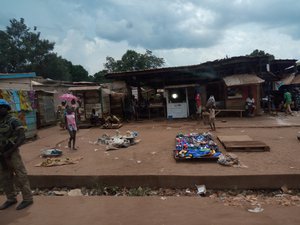Please tell us which country and city you'd like to see the weather in.

Makran
Makran (مکران) (pronounced [mæk'rɑːn]) is a semi-desert coastal strip in Balochistan, in Pakistan and Iran, along the coast of the Persian Gulf and the Gulf of Oman. The name Makran derives from Maka, borne by an overlapping satrapy of the Achaemenid Empire. Another, older derivation is from the Makar, or sea dragon, after the humpback whales or whale sharks that abound in the north Arabian Sea.
Achaemenid era
The word Maka later became Makran, as it is common in closely related ancient Avestan and Old Persian languages to use "an" and "ran" at the end of plurals.
Maka was an important early eastern satrapy of Cyrus the Great, founder of the Achaemenid Empire. It corresponded to modern day Bahrain, Qatar, and United Arab Emirates, plus the northern half of Oman, as well as Balochistan and the Sindh province of Pakistan. The Babylonians had made voyages using Maka to communicate with India. After Cyrus' death, Darius I of Persia succeeded his throne, and, according to Greek historian Herodotus, wanted to know more about Asia. He wished to know where the "Indus (which is the only river save one that produces crocodiles) emptied itself into the sea". After personally leading his elite forces, whose ranks were restricted to those with Persian, Mede, or Elamite ancestry, to fight the invading Scythians, he led a campaign of conquest towards South Asia, conquering Sindh in 519 BC and constituting it as his 20th satrapy. After the fall of the Achaemenid Empire, Alexander the Great also crossed Maka in his campaign of conquest. His army marched through a harsh desert path in Makran, where he lost a significant number of soldiers but did not come across any Baloch forces, encountering only a few coastal inhabitants. This harsh desert path of Alexander is often mistaken as representing the whole of the Makran region.

Makran (princely state)
Makran was an autonomous princely state in a subsidiary alliance with British India until 1947, then from 1948 a princely state of Pakistan. It ceased to exist in 1955. It was located in the extreme southwest of present-day Pakistan, an area now occupied by the districts of Gwadar, Kech and Panjgur. The state did not include the enclave of Gwadar, which was under Omani rule until 1958.
History
The state of Makran was established in the eighteenth century. Ruled by the Sardars of the Gichki Baloch family of Makran, who remained sovereign until 1948. On 17 March 1948, Makran acceded to Pakistan, and on 3 October 1952 it joined Kalat, Kharan and Las Bela to form the Baluchistan States Union. The state was dissolved on 14 October 1955, when most regions of the western wing of Pakistan were merged to form the province of West Pakistan. When that province was dissolved in 1970, the territory of the former state of Makran was organised as Makran District and later Makran Division of the province of Baluchistan (later changed to Balochistan).

Down on my Knees (after Memphis)
Oh, American Rose you put a thorn in my side
Can’t you see that the plane is leaving but
I just can’t take the ride
Oh no I can’t fly back to England now
I got your breath in my blood too strong
And I knew that night down in Tennessee
I was fated to sing this song.
Down on my knees after Memphis
Nowhere to run
Just the sad country music on the radio driving me on
Down on my knees after Memphis
And feelin’ so small
Like a faded country star
When there’s no hope left at all
Oh I’m down, down on my knees
Latest News for: makran
Iranian Army’s Ground Force holds 2nd day of drills on Makran coast
Army Special Forces hold maneuvers on Makran coasts
Iran's Army starts drill on southeastern Makran coast
Iranian Army’s Ground Force starts drill on southeastern Makran coast
Helicopter carrier ‘Makran’ manifesting intelligence of Iranian youth: Navy Commander
No ventilator in Pakistan's Makran Division despite surge in COVID-19 cases
- 1
Article Search
Most Viewed
Metro UK | 21 Jan 2021
The Star | 22 Jan 2021
Press TV | 21 Jan 2021
India TV | 22 Jan 2021
The Conversation | 21 Jan 2021
The New Arab | 21 Jan 2021
















